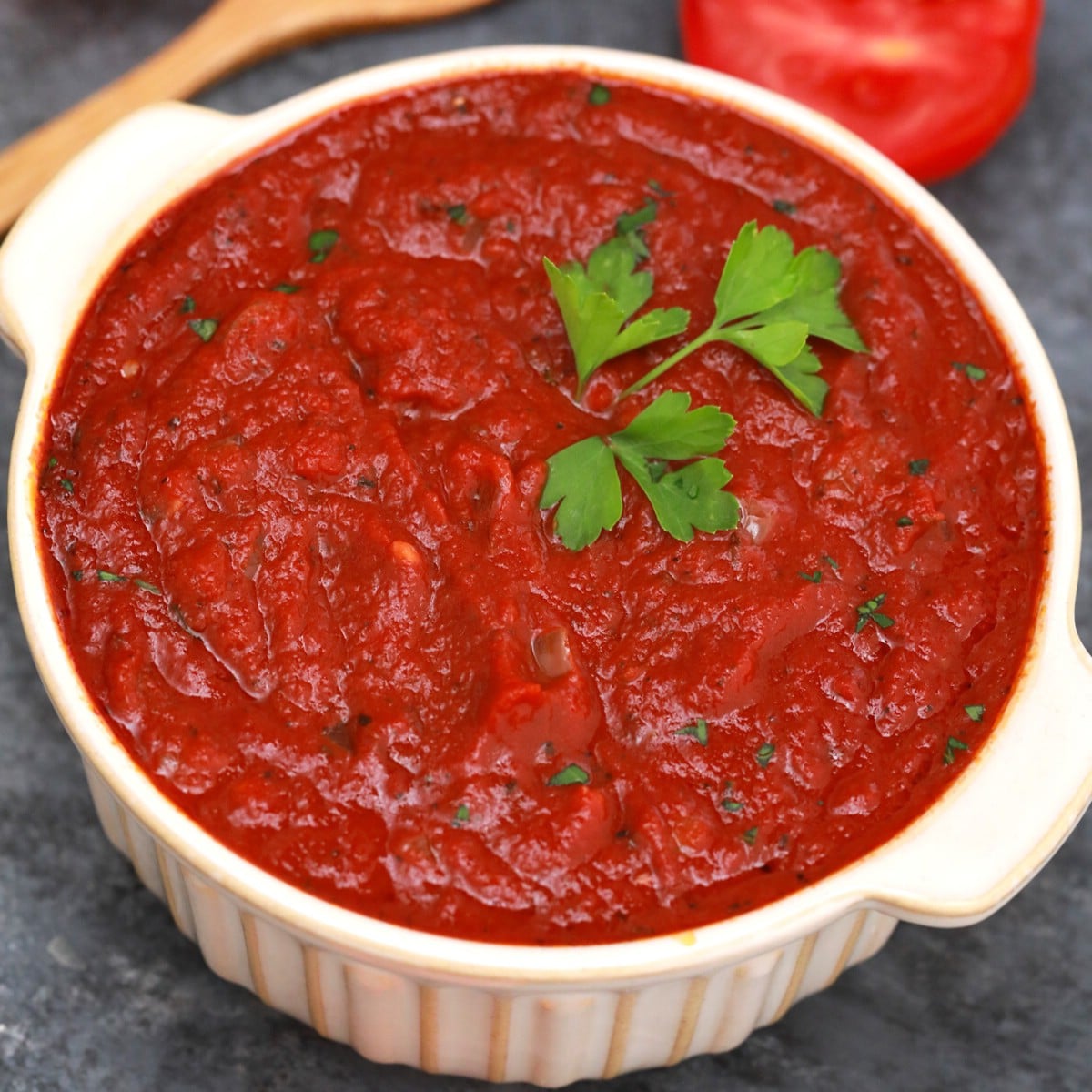

Articles
How To Store Homemade Pasta Sauce
Modified: August 17, 2024
Learn the best methods for storing homemade pasta sauce to keep it fresh and flavorful. Our articles provide tips and tricks for preserving your delicious sauce for later use.
(Many of the links in this article redirect to a specific reviewed product. Your purchase of these products through affiliate links helps to generate commission for Storables.com, at no extra cost. Learn more)
Introduction
Homemade pasta sauce is a delicious and versatile condiment that can elevate any pasta dish. Whether you spent hours simmering a flavorful marinara sauce or created a rich and creamy Alfredo sauce from scratch, it’s important to know how to store your homemade sauce properly to maximize its freshness and flavor.
Proper storage techniques will not only help extend the shelf life of your pasta sauce, but also ensure that it remains safe to consume. In this article, we’ll guide you through the step-by-step process of storing homemade pasta sauce, whether you plan to keep it in the refrigerator or the freezer.
Before we dive into the storage methods, it’s important to have all the necessary ingredients and equipment on hand. Furthermore, ensuring that your sauce is cooked, cooled, and packaged correctly will help preserve its quality for longer periods. Let’s explore the different aspects of storing homemade pasta sauce to ensure that your culinary creations continue to impress every time you serve them.
Key Takeaways:
- Properly storing homemade pasta sauce ensures freshness and safety. From cooking and cooling to labeling and freezing, follow these steps to enjoy delicious pasta sauce for up to 3 months.
- Refrigerate homemade pasta sauce for short-term use or freeze for up to 3 months. Proper packaging, labeling, and storage in the freezer ensure convenient access to flavorful sauce whenever you need it.
Read more: How To Store Homemade Sauces
Ingredients
To store your homemade pasta sauce effectively, you will need a few ingredients. These ingredients are simple and easy to find. Here’s what you’ll need:
1. Homemade Pasta Sauce: This can be any type of pasta sauce that you have made from scratch, such as marinara sauce, pesto sauce, or Alfredo sauce.
2. Jars or Containers: You will need airtight glass jars or containers to store your pasta sauce properly. Make sure these containers are clean and have tight-fitting lids to maintain freshness and prevent leakage.
3. Labels: It’s essential to label your jars or containers. This helps you identify the sauce and the date it was made, ensuring you use the oldest sauce first.
4. Freezer Bags (optional): If you plan to freeze your pasta sauce, you can also use freezer bags as an alternative to jars or containers. These bags are space-efficient and allow for easy stacking in the freezer.
Make sure to gather these ingredients before you begin the process of storing your homemade pasta sauce. Having everything ready will make the process more efficient and ensure that your sauce stays fresh and flavorful for an extended period.
Equipment
In addition to the ingredients mentioned above, you will also need some essential equipment to properly store your homemade pasta sauce. Here are the items you will need:
1. Saucepan: A saucepan is required to cook your pasta sauce. Choose a size that is appropriate for the amount of sauce you are making.
2. Wooden Spoon: A wooden spoon or any heat-resistant spoon will be used to stir the sauce while it is cooking.
3. Ladle or Funnel: A ladle or funnel will make it easier to transfer the sauce into the storage jars or containers without making a mess.
4. Glass Jars or Containers: As mentioned before, you will need airtight glass jars or containers to store your pasta sauce. Make sure they are clean and have tight-fitting lids.
5. Labels and Marker: Labels and a marker are necessary to indicate the type of sauce and the date you made it. This will help you keep track of the sauce’s freshness.
6. Freezer Bags (optional): If you choose to freeze your pasta sauce, you may need freezer bags. These bags are convenient for storing sauce in the freezer, as they take up less space.
Having the right equipment on hand will streamline the process of storing your homemade pasta sauce. Make sure to gather all the necessary equipment before you start cooking and storing your sauce to ensure a smooth and efficient process.
Step 1: Cook the Sauce
The first step in storing homemade pasta sauce is to cook the sauce itself. Follow your preferred recipe or use your own tried-and-true method to prepare a delicious batch of sauce. Whether you’re making a classic marinara, a creamy Alfredo, or a pesto sauce, be sure to cook it thoroughly to develop the flavors.
As you cook the sauce, it’s important to taste and adjust the seasonings to your liking. This is your opportunity to add herbs, spices, or any other ingredients that will enhance the flavor. Don’t be afraid to get creative and experiment with different ingredients to personalize the sauce to your taste.
Once the sauce is cooked to perfection, allow it to cool down slightly before proceeding to the next step. This will make it easier to handle and package the sauce without risking any burns.
Remember to note down the cooking date to help you keep track of the sauce’s freshness. This information will come in handy when you need to decide which batch to use first.
Now that your pasta sauce is deliciously cooked, it’s time to move on to the next step: cooling it down and preparing it for storage.
Step 2: Cool the Sauce
After cooking your homemade pasta sauce, it’s important to let it cool down before storing it. Cooling the sauce properly helps prevent any potential bacterial growth and maintains its quality and flavor. Here’s how you can cool your pasta sauce effectively:
1. Transfer the Sauce: Using a ladle or a heat-resistant spoon, carefully transfer the hot sauce into a clean, heat-safe container or a shallow pan.
2. Spread it Out: To speed up the cooling process, spread the sauce out in the container so it forms a thin layer. This allows the heat to dissipate more quickly.
3. Allow Time: Let the sauce cool naturally at room temperature for about 30 minutes to an hour. Avoid placing it in the refrigerator immediately, as it may raise the overall temperature in the fridge.
4. Stir Occasionally: During the cooling process, gently stir the sauce occasionally. This helps distribute the heat evenly and prevents any skin from forming on the surface.
5. Speed up Cooling: If you’re in a hurry to cool the sauce, you can place the container in a larger pan filled with ice water. Stir the sauce occasionally while it’s in the ice bath to ensure even cooling.
Remember, cooling the sauce properly is important for food safety. It reduces the risk of bacteria growth and helps preserve the flavor and texture of the sauce. Once the sauce has cooled down, it’s ready to be transferred into storage jars or containers for long-term storage.
Read more: How To Store Leftover Pasta With Sauce
Step 3: Store in Jars
Once your homemade pasta sauce has cooled down, it’s time to transfer it into airtight glass jars or containers for storage. The use of glass jars is ideal because they are non-reactive and provide a seal that helps maintain the sauce’s freshness. Follow these steps to store your sauce in jars:
1. Clean Jars: Make sure the jars you are using are clean and sterilized. Wash them with hot, soapy water, rinse thoroughly, and allow them to air-dry. Sterilizing the jars helps prevent any potential bacteria from contaminating the sauce.
2. Fill the Jars: Using a ladle or a funnel, carefully pour the cooled sauce into the glass jars, leaving about half an inch of headspace at the top. This allows for expansion as the sauce freezes or refrigerates.
3. Remove Air Bubbles: To ensure the sauce is evenly distributed and there are no air bubbles in the jars, gently tap the jars on a hard surface. This will help any trapped air bubbles rise to the top.
4. Seal the Jars: Place the lids on the jars and tighten them securely. The lids should create a tight seal to prevent any air or moisture from entering the jars.
5. Optional: If you prefer, you can place a layer of plastic wrap or wax paper directly on top of the sauce before sealing the jars. This helps create an additional barrier and prevents any potential contact with the jar lids.
Remember to label the jars with the type of sauce and the date it was made. This will make it easier to identify the sauce and use the oldest one first.
Once your pasta sauce is safely stored in the jars, you can move on to the next step: refrigeration or freezing, depending on your preference and storage time requirements.
Store homemade pasta sauce in airtight containers in the refrigerator for up to 5 days, or freeze it for up to 3 months for longer storage. Be sure to label and date the containers for easy reference.
Step 4: Label and Date the Jars
Labeling and dating your homemade pasta sauce jars is an important step to keep track of the freshness and type of sauce stored. By clearly marking the jars, you can easily identify them and use them in the appropriate order. Here’s how to label and date your jars:
1. Prepare Labels: Gather some adhesive labels or masking tape and a marker or pen. These will be used to write the sauce names and dates.
2. Label the Jars: Write the name of the sauce on the label or masking tape. For example, if it’s a marinara sauce, simply write “Marinara” on the label. Be clear and concise so you can easily identify the sauce later.
3. Date the Jars: Write the date you made the sauce on the label as well. This is crucial for keeping track of the freshness and ensuring you use the oldest sauce first. Write the full date, including the month, day, and year.
4. Attach the Labels: Stick the labels or masking tape onto the jars, making sure they’re securely attached. Place the labels on the front of the jars where they can be easily seen and read.
Properly labeling and dating your pasta sauce jars will make it easier to organize your sauce collection. This way, you’ll always know what type of sauce you have and when it was made. It also helps you plan your meals accordingly, using the sauce within its recommended shelf life.
Once you have labeled and dated the jars, you’re ready to move on to the next steps: storing the sauce in the refrigerator or freezer, depending on your storage needs.
Step 5: Store in the Refrigerator
If you plan to use your homemade pasta sauce within a few days to a week, storing it in the refrigerator is the best option. Keeping the sauce chilled ensures its freshness and maintains its flavor. Follow these steps to store your pasta sauce in the refrigerator:
1. Temperature Check: Make sure your refrigerator is set to the proper temperature, typically around 40°F (4°C). This temperature range helps slow down bacterial growth and keeps your sauce safe to consume.
2. Place in Refrigerator: Carefully place the labeled and sealed jars of pasta sauce in the refrigerator. Choose a spot where the temperature is consistent and the jars won’t be disturbed.
3. Avoid the Door: It’s best to store the sauce towards the back of the refrigerator rather than on the door. The door area experiences temperature fluctuations every time it is opened, which can affect the quality of the sauce.
4. Use Within Recommended Time: Homemade pasta sauce stored in the refrigerator is typically safe to consume for about 4 to 5 days. It’s important to use the sauce within this time frame to ensure its freshness and maintain its flavor.
Remember to check for any signs of spoilage, such as mold growth, off smells, or strange colors. If you notice any, it’s best to discard the sauce immediately to avoid any potential health risks.
Storing your homemade pasta sauce in the refrigerator allows for quick and easy access when you’re ready to use it. Now that your sauce is safely stored in the refrigerator, you can move on to the next step: freezing the sauce for longer-term storage if needed.
Step 6: Freezing the Sauce
If you want to extend the shelf life of your homemade pasta sauce beyond a week, freezing is a fantastic option. Freezing preserves the freshness and flavors of the sauce, allowing you to enjoy it at a later time. Follow these steps to freeze your pasta sauce effectively:
1. Ensure Proper Packaging: If you plan to freeze the sauce in the same glass jars or containers used for refrigeration, make sure they are freezer-safe. Alternatively, you can transfer the sauce into freezer-safe containers or freezer bags for better space efficiency.
2. Portion Control: Consider portioning the sauce into smaller containers or freezer bags to make it easier to thaw smaller quantities as needed. This way, you can use only what you need without thawing the entire batch.
3. Leave Headroom: Whether using glass jars or freezer bags, make sure to leave some room at the top for expansion as the sauce freezes. The sauce will naturally expand during freezing, so providing enough headspace prevents the containers from cracking or breaking.
4. Remove Air: When using freezer bags, squeeze out as much air as possible before sealing them. This reduces the chances of freezer burn and helps maintain the sauce’s quality.
5. Seal and Label: Securely seal the containers or freezer bags, ensuring they are airtight. Then, label each container with the sauce name and the date it was made. This will help you identify the sauce and use the oldest ones first.
6. Use within Recommended Time: Homemade pasta sauce stored in the freezer can be safely consumed for up to 3 months. While it may still be safe to consume beyond that time, the quality may deteriorate over time.
By following these steps, you can safely freeze your homemade pasta sauce, allowing you to have a convenient stash of sauce ready whenever you need it. However, if you prefer to store the sauce in the freezer for longer periods, make sure to check for any signs of freezer burn or deterioration before using it.
With your sauce safely frozen, you can move on to the final step: storing it in the freezer until you’re ready to use it.
Read more: How To Store Pasta Sauce In Freezer
Step 7: Storing in the Freezer
After properly packaging your homemade pasta sauce for freezing, it’s time to store it in the freezer. Storing the sauce correctly will help maintain its quality and ensure it stays fresh for an extended period. Follow these steps to store your pasta sauce in the freezer:
1. Find a Flat Surface: Clear a flat surface in your freezer to provide a stable and even storage area for your sauce containers or freezer bags.
2. Arrange Containers: If you are using glass jars or freezer-safe containers, arrange them in a single layer on the flat surface. Ensure they are not touching each other to allow for proper circulation of cold air.
3. Stack Freezer Bags: If you opted for freezer bags, try to stack them in an organized manner, making sure they are flat and not overcrowded. This minimizes the risk of the bags leaking or bursting.
4. Optimize Space: Make the most of your freezer space by organizing the containers or freezer bags strategically. Stack them in a way that maximizes the storage capacity while keeping the sauce easily accessible.
5. Freeze the Sauce: Carefully place the arranged containers or stacked freezer bags in the freezer, making sure they are well-supported and won’t tip over. Avoid placing them near the freezer vents to prevent uneven freezing.
6. Keep Track of Time: Remember to note the freezing date on your labels. While frozen pasta sauce can be stored for up to 3 months, it’s recommended to use it within this time frame for optimal quality and flavor.
7. Thawing: When you’re ready to use the sauce, thaw it in the refrigerator overnight or use the defrost function on your microwave if you need it quickly. Avoid thawing the sauce at room temperature to minimize the risk of bacterial growth.
Storing your homemade pasta sauce in the freezer allows you to enjoy it at any time, providing a convenient solution for busy days. With proper storage and labeling, you can easily identify and access different batches of sauce.
By following these steps, you can confidently store your homemade pasta sauce in the freezer, ensuring it remains fresh and flavorful until you’re ready to savor it again.
Conclusion
Storing homemade pasta sauce properly is essential for both preserving its flavor and ensuring its safety for consumption. Whether you choose to store it in the refrigerator for short-term use or freeze it for longer-term storage, following the right steps will help maintain the sauce’s freshness and quality.
By cooking your sauce to perfection, allowing it to cool properly, and transferring it into airtight containers, you can ensure that your pasta sauce remains delicious and safe to eat. Labeling and dating the jars or containers is crucial for keeping track of the sauce’s freshness and using the oldest batch first.
Refrigerating your sauce allows for convenient access within a few days to a week, while freezing it extends its shelf life for up to 3 months. Freezing also offers the advantage of portioning the sauce for greater flexibility.
Remember to always check for signs of spoilage before consuming any stored sauce, such as mold growth, off smells, or unusual colors. If any of these signs are present, discard the sauce immediately to avoid any potential health risks.
Storing homemade pasta sauce not only saves you time in the kitchen but also ensures that you’ll always have a delicious sauce on hand for your favorite pasta dishes. So, the next time you whip up a batch of homemade sauce, use these storage techniques to make the most of your culinary creation.
Whether you’re creating a classic marinara, a rich Alfredo, or a flavorful pesto sauce, implementing these storage methods will help you enjoy the fruits of your labor for longer periods. With proper storage and a well-stocked pantry or freezer, you’ll always be ready to serve up a delightful pasta dish bursting with homemade flavor.
So, go ahead and store your homemade pasta sauce correctly, and prepare to savor the incredible flavors whenever the craving strikes. Happy cooking and storing!
Frequently Asked Questions about How To Store Homemade Pasta Sauce
Was this page helpful?
At Storables.com, we guarantee accurate and reliable information. Our content, validated by Expert Board Contributors, is crafted following stringent Editorial Policies. We're committed to providing you with well-researched, expert-backed insights for all your informational needs.
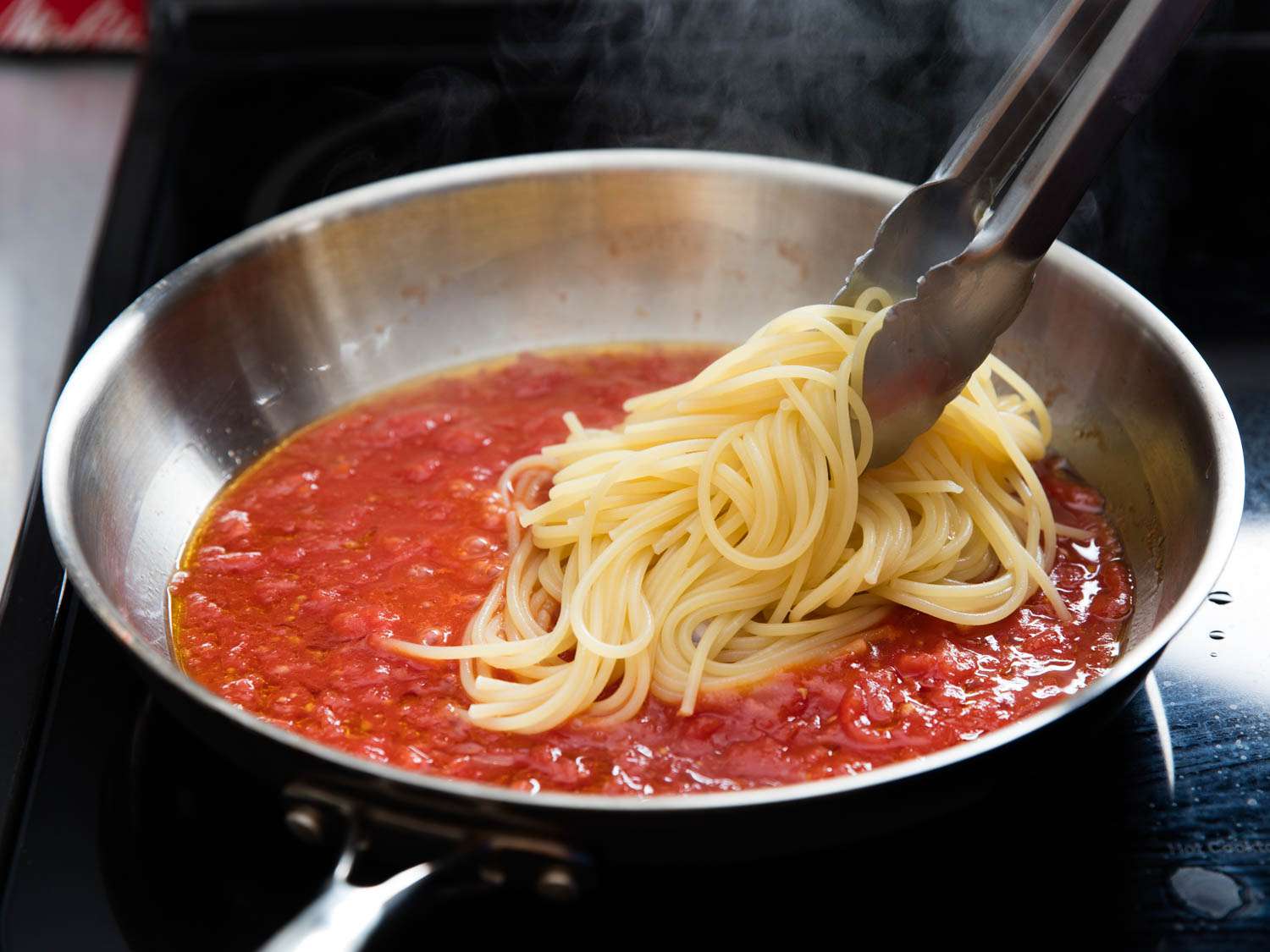
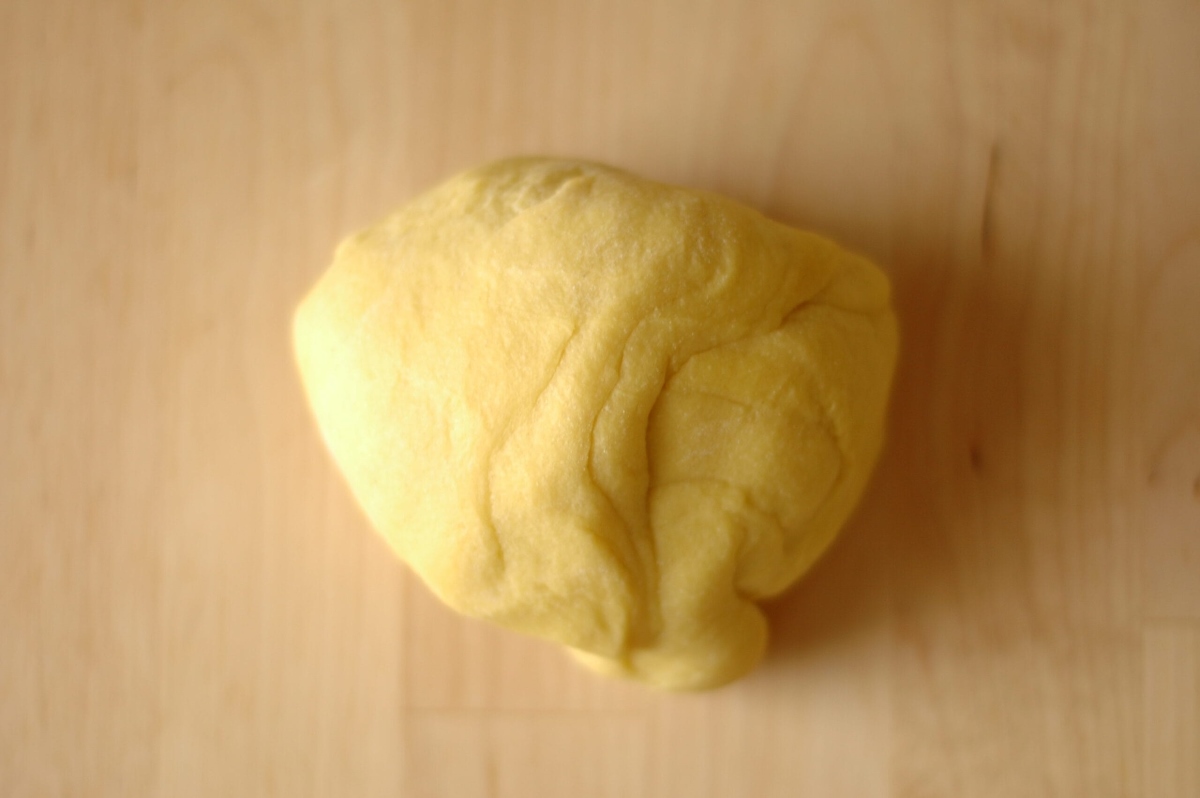
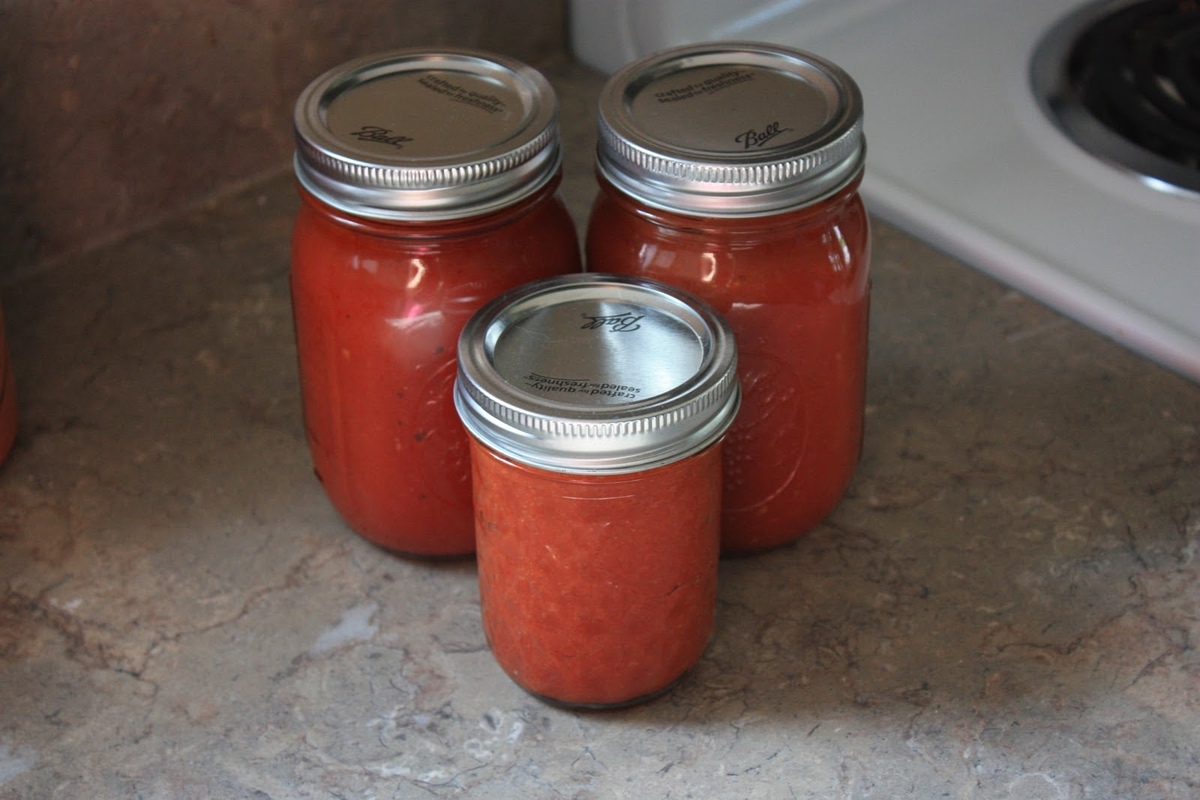
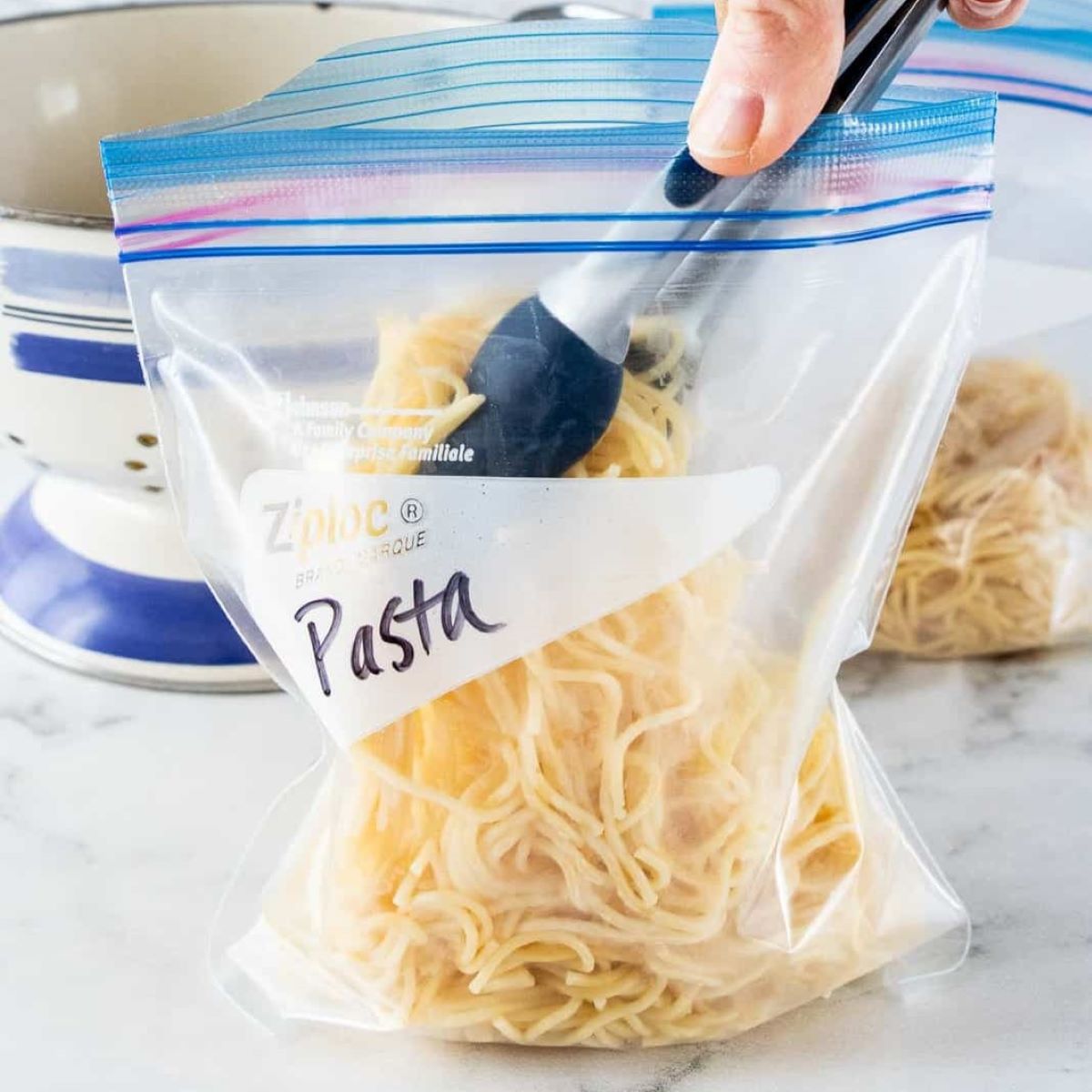

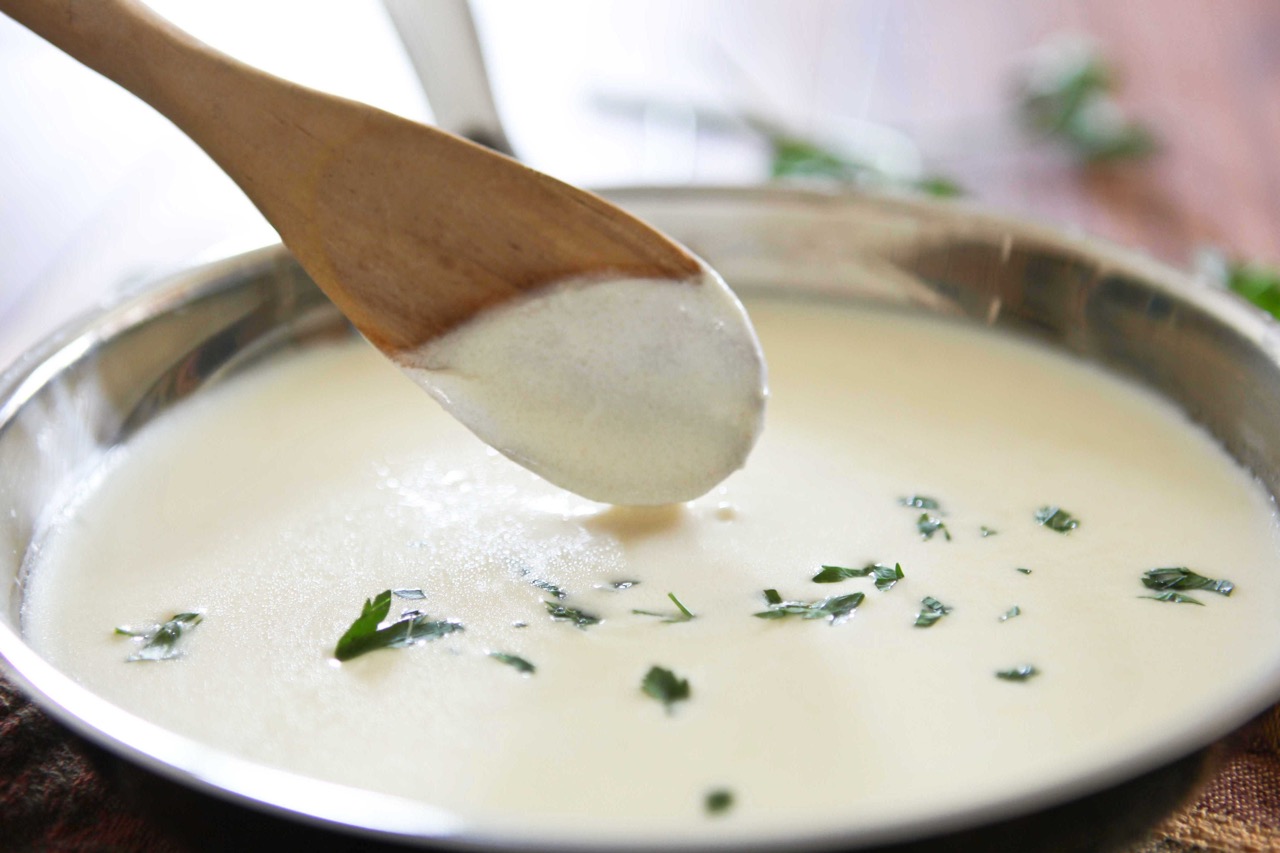
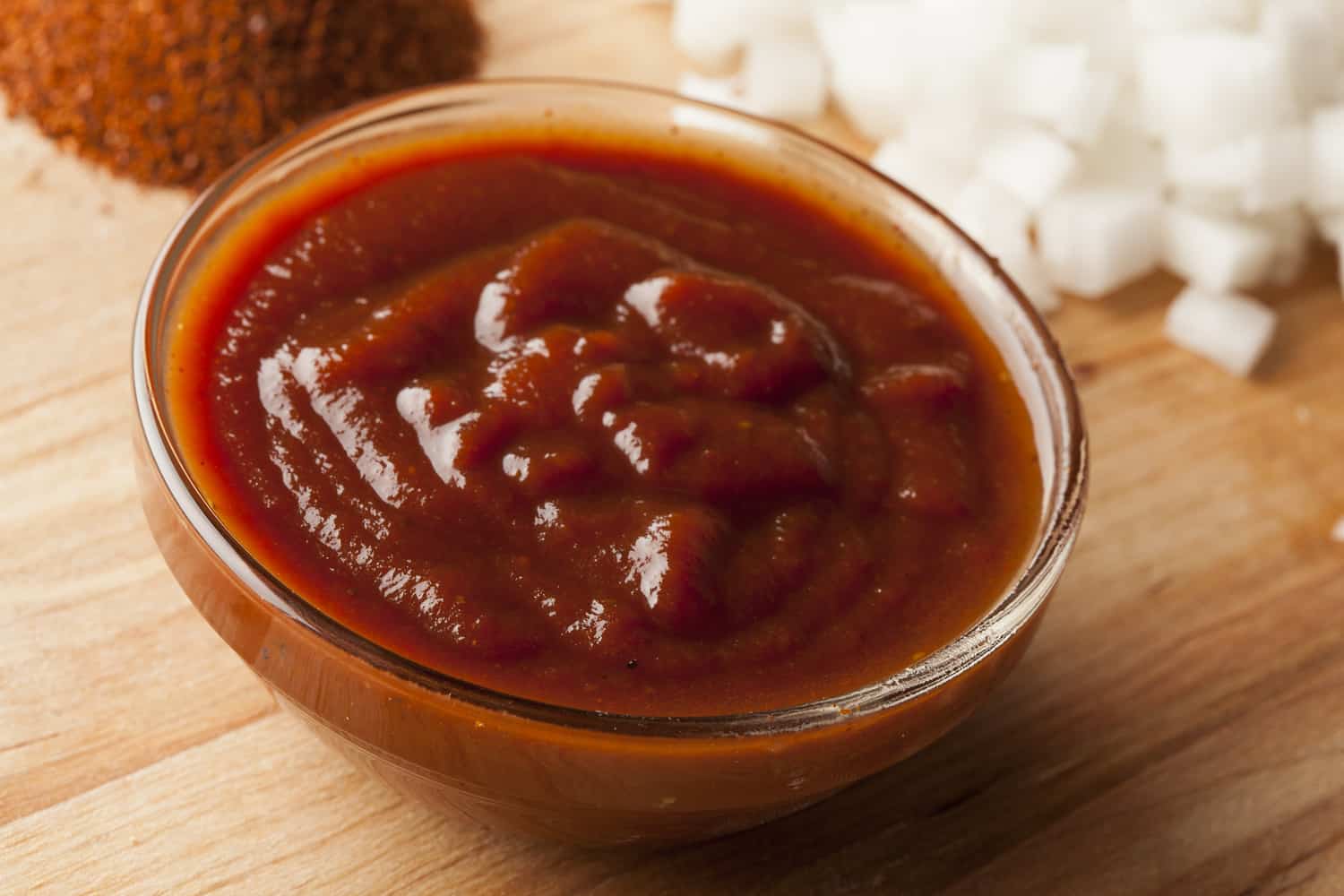
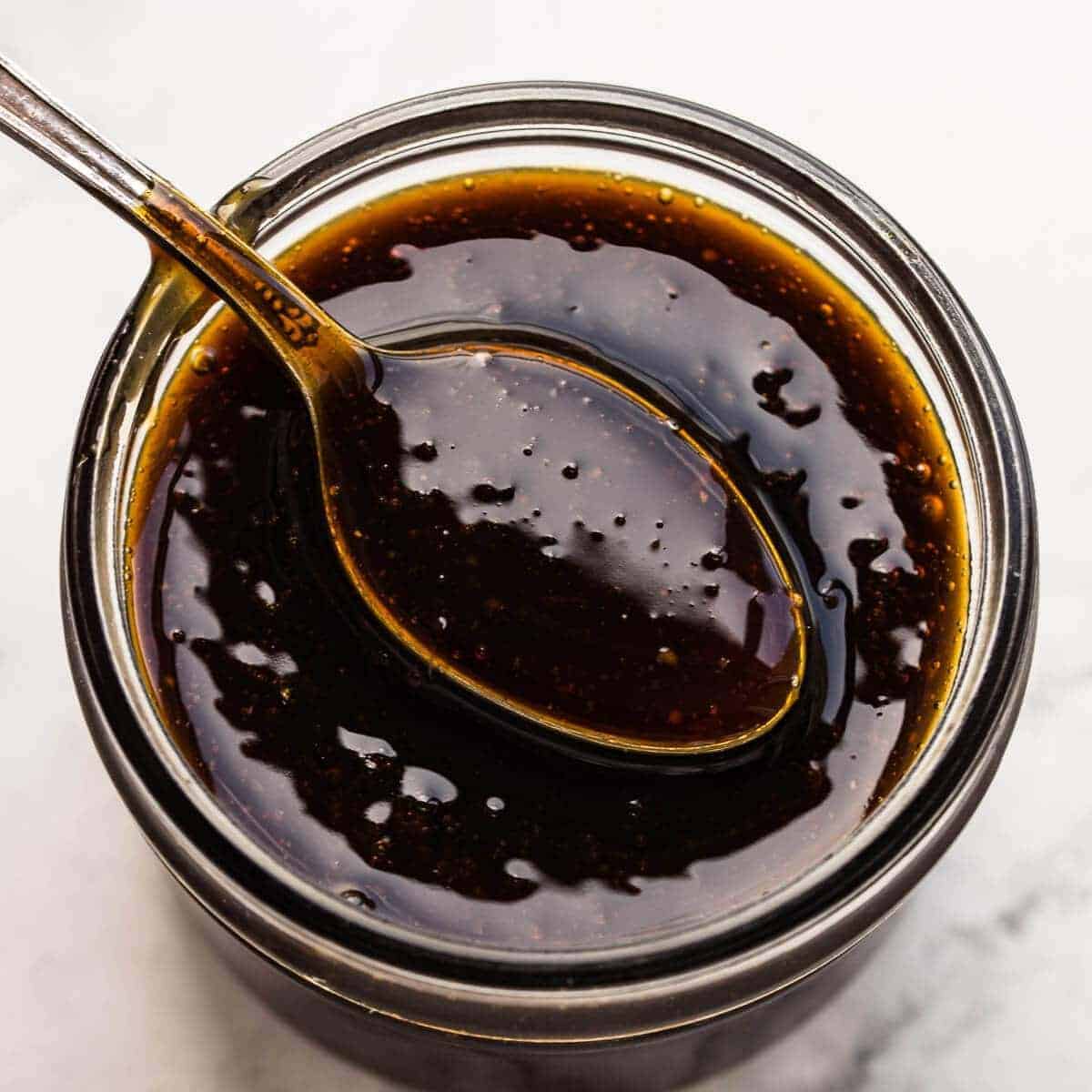
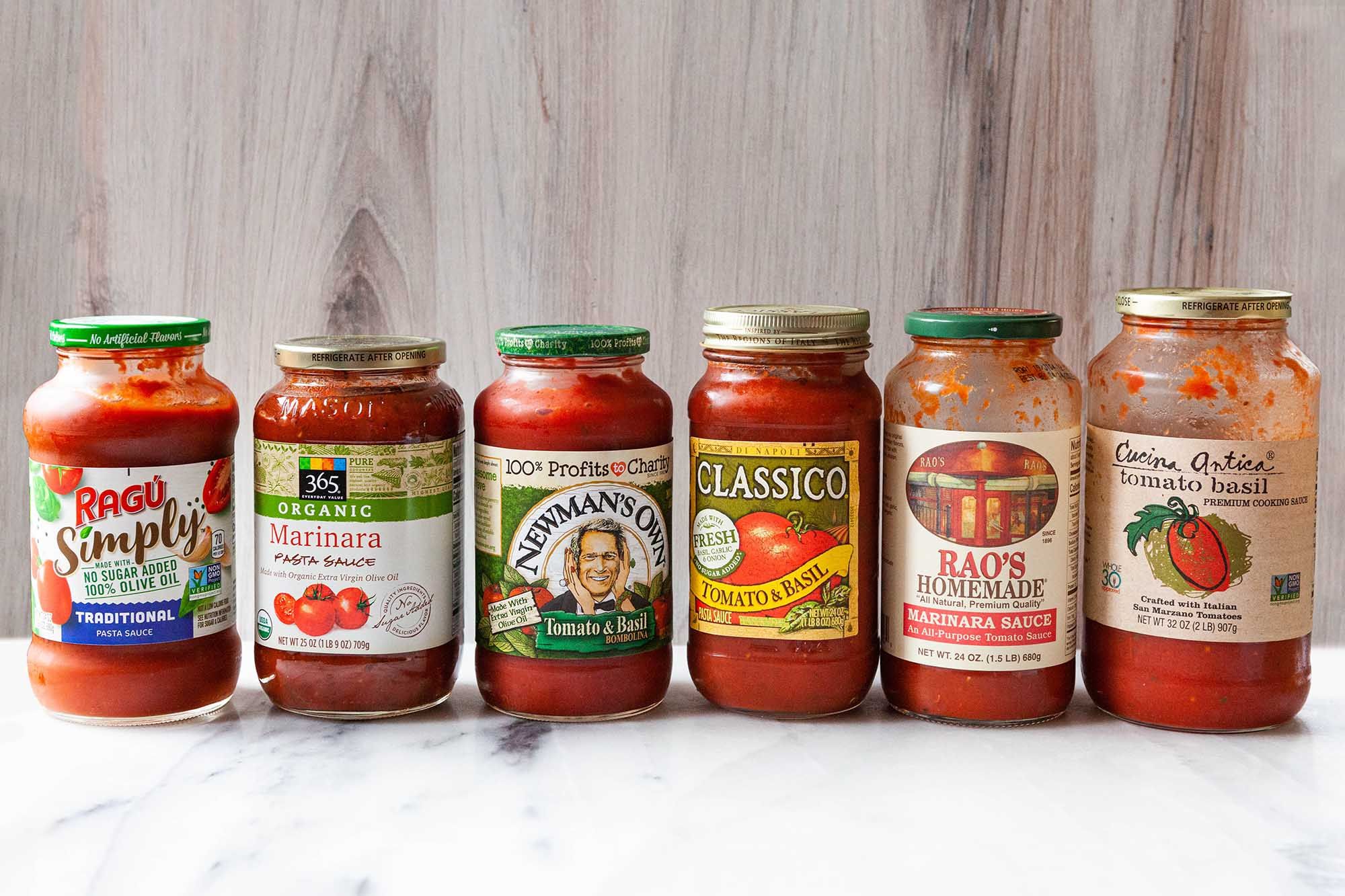
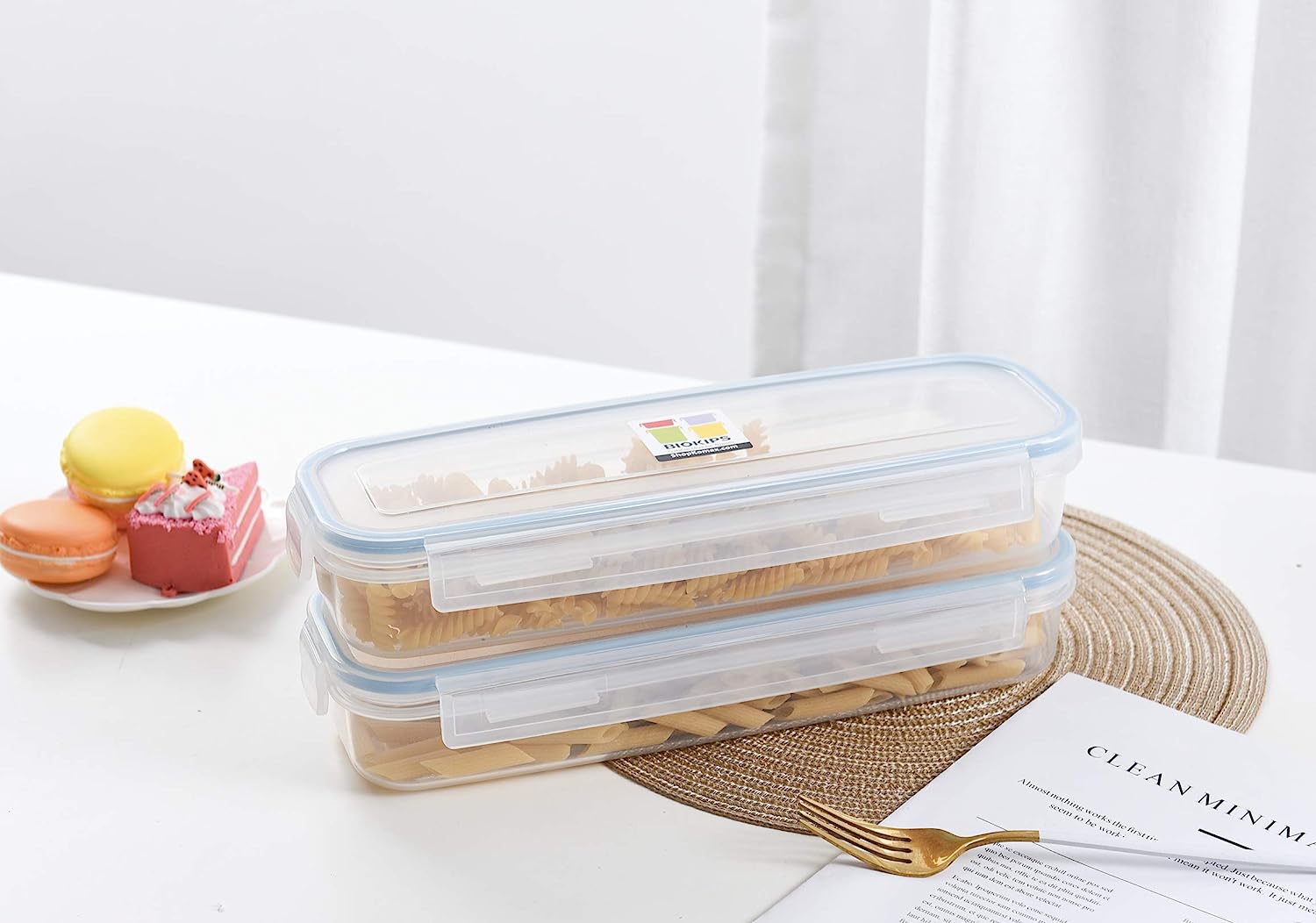
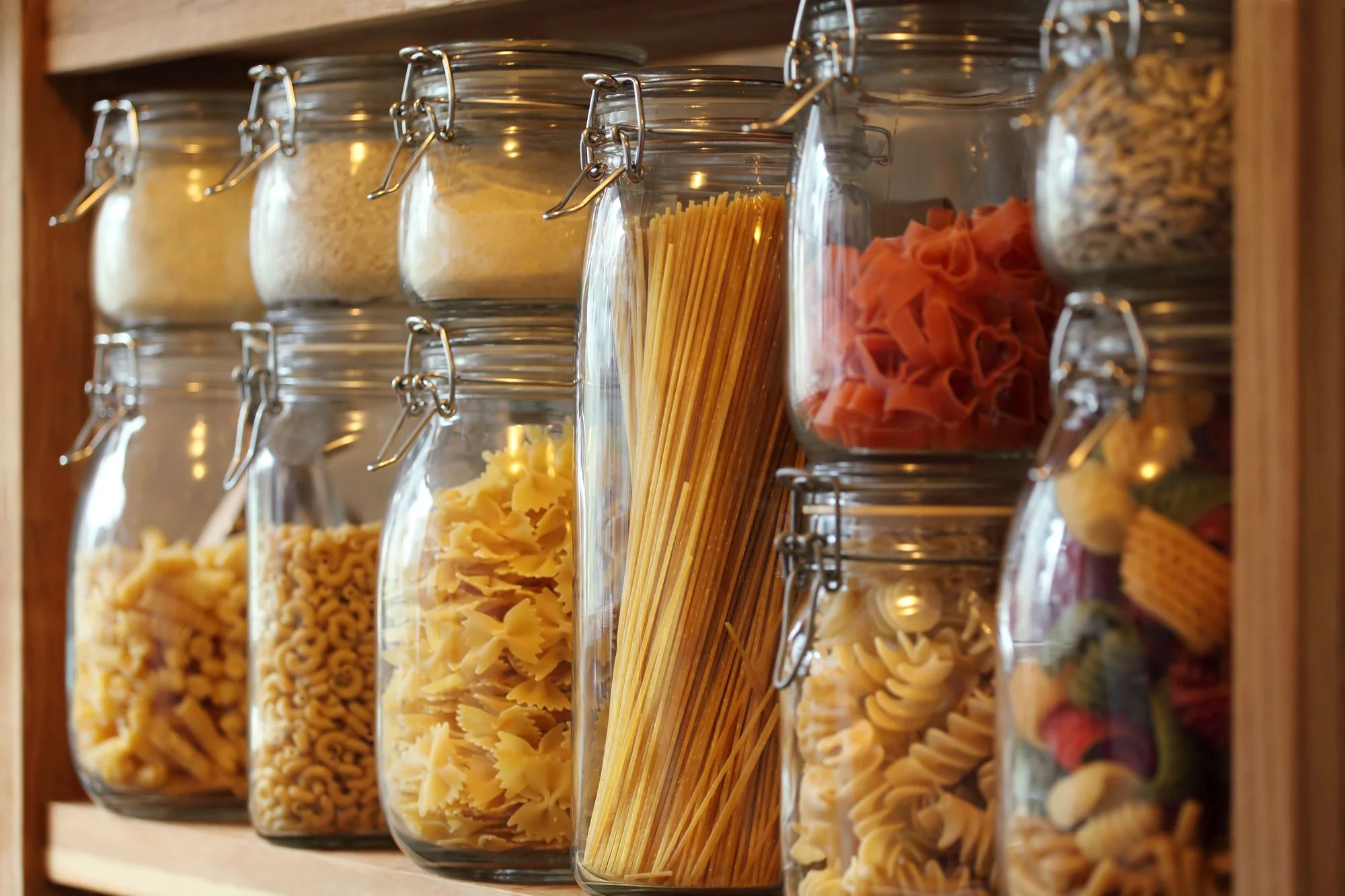
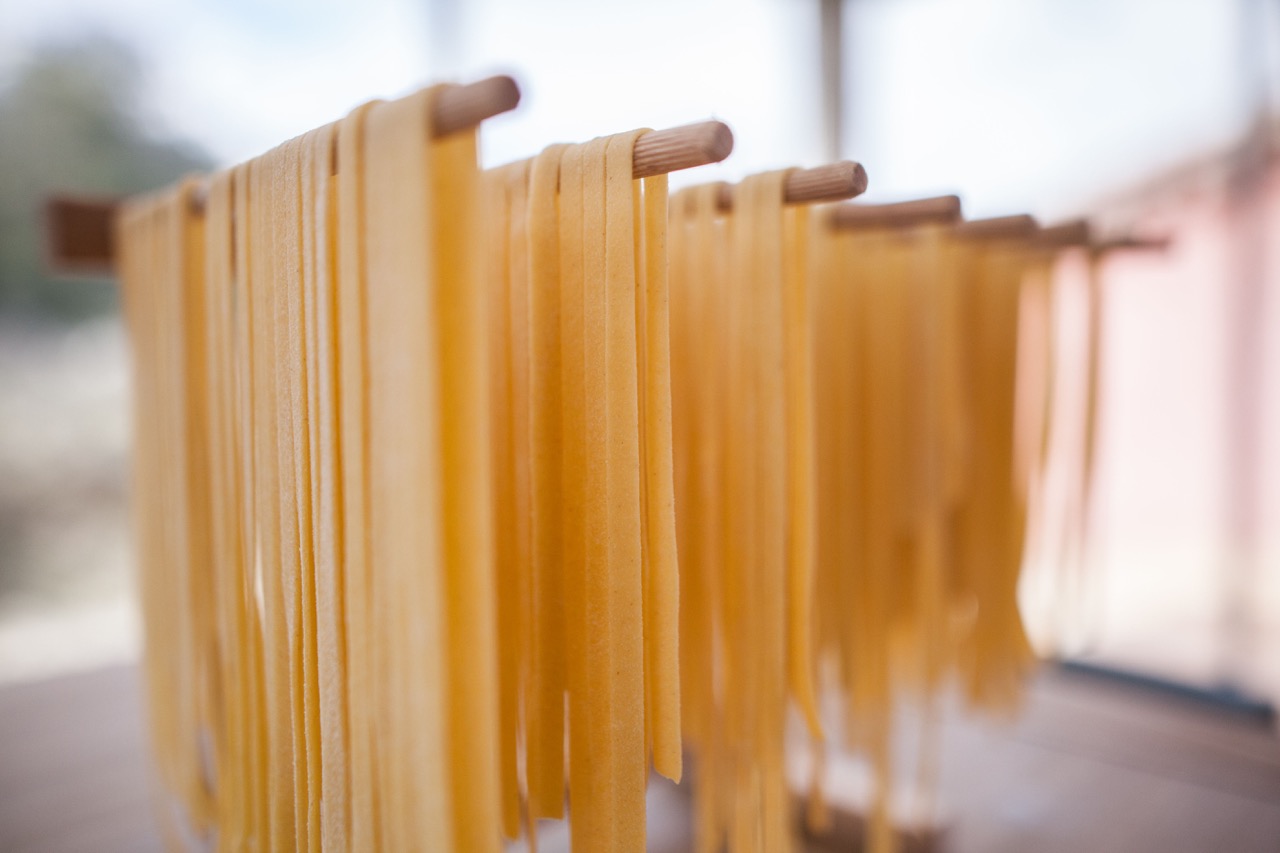


0 thoughts on “How To Store Homemade Pasta Sauce”